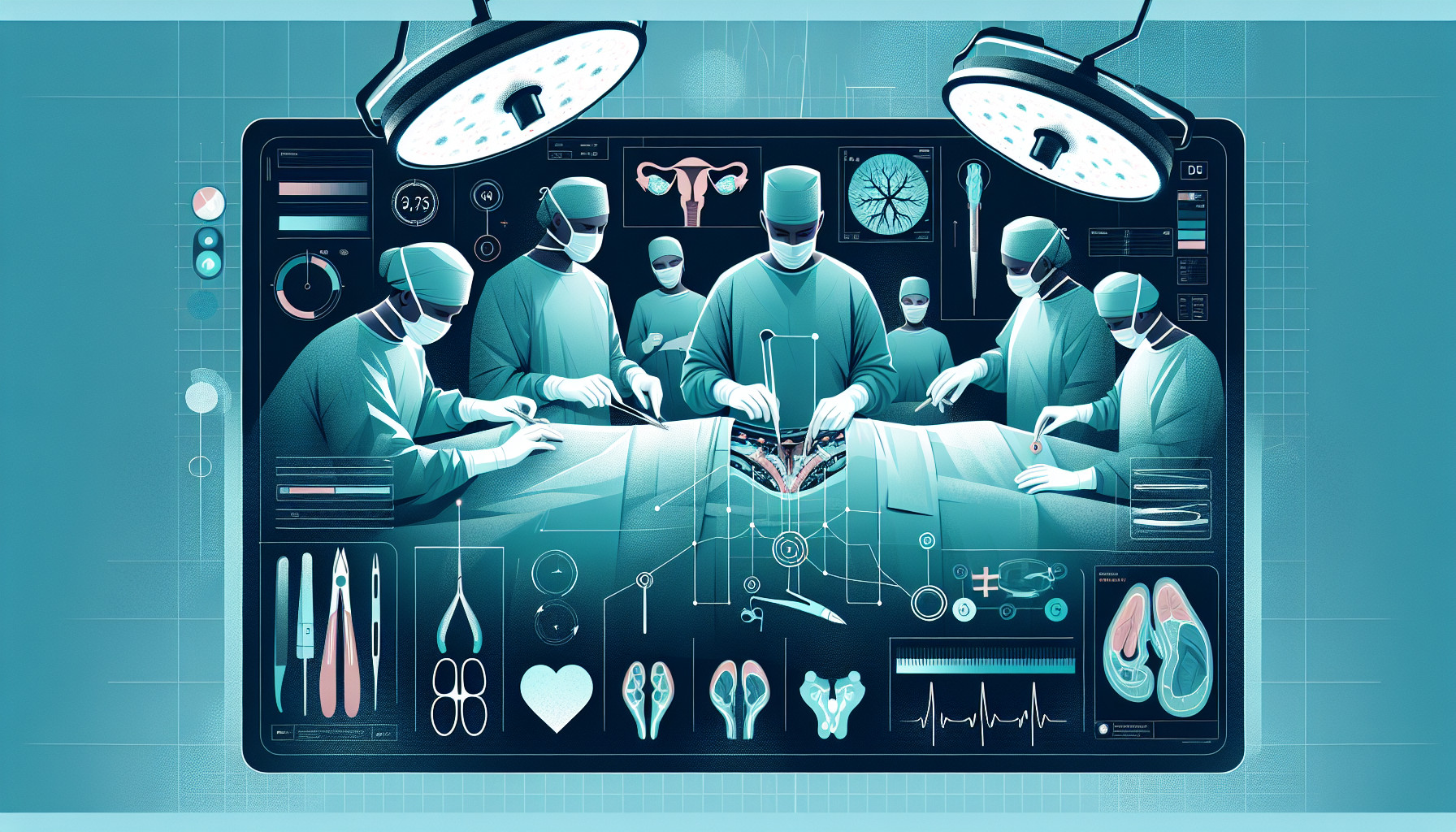Our Summary
The research paper reviews the outcomes of different types of surgeries used to treat testicular cancer. The standard approach is to remove the entire testicle (radical inguinal orchiectomy) when a mass, that could be a germ cell tumor, is found. However, other methods such as testis-sparing surgery (TSS) and scrotal orchiectomy are sometimes used.
The researchers looked at multiple studies published between 1980 and 2018 to review the rates of cancer returning and other health outcomes after these types of surgeries. They found that after TSS, the cancer came back locally in about 7.5% of cases after 3 to 5 years. However, the rates of incomplete removal of the tumor (1.4%) and testicle shrinkage (2.8%) were quite low and only 7.1% of patients needed subsequent hormone therapy.
When the scrotum was breached during surgery, there was a higher chance of the cancer coming back locally (2.5%) compared to when it wasn’t (0%). However, this did not seem to affect the likelihood of the cancer spreading or survival rates in the short term (3-5 years). Most patients received additional treatment after scrotal violation and in 9.3% of cases, there was leftover primary tumor after the removal of the scar from the surgery.
In conclusion, TSS carries a certain risk of the cancer returning in the same area after 3 to 5 years, even though most patients receive additional radiation or chemotherapy. Breaching the scrotum during surgery also carries a risk of local return of the cancer, but this does not seem to affect the chance of the cancer spreading or survival rates in the short term.
FAQs
- What are the different types of surgeries used to treat testicular cancer?
- What is the likelihood of cancer returning after testis-sparing surgery (TSS)?
- Does breaching the scrotum during surgery affect the chances of cancer spreading or survival rates?
Doctor’s Tip
A helpful tip a doctor might give a patient about testicular surgery is to follow post-operative care instructions carefully to minimize the risk of complications and ensure a successful recovery. This may include avoiding strenuous activities, keeping the area clean and dry, taking prescribed medications as directed, and attending follow-up appointments with your healthcare provider. It’s also important to report any unusual symptoms or concerns to your doctor promptly.
Suitable For
Overall, patients with testicular cancer who are recommended for testicular surgery are typically those with a suspected germ cell tumor in the testicle. The decision to undergo radical inguinal orchiectomy, testis-sparing surgery, or scrotal orchiectomy depends on various factors such as the size and location of the tumor, the stage of the cancer, and the patient’s overall health and preferences. It is important for patients to discuss the risks and benefits of each surgical option with their healthcare provider to make an informed decision about their treatment.
Timeline
Before testicular surgery, a patient typically undergoes imaging tests such as ultrasound or CT scans to determine the presence and extent of the tumor. Blood tests may also be done to check for tumor markers. After a diagnosis of testicular cancer, the patient will meet with a urologist and oncologist to discuss treatment options, which may include surgery, chemotherapy, or radiation therapy.
After testicular surgery, the patient will typically have a recovery period of a few weeks, during which they may experience pain, swelling, and bruising in the scrotum. Follow-up appointments with the doctor will be scheduled to monitor healing and check for any signs of complications. Depending on the type of surgery and the stage of the cancer, additional treatments such as chemotherapy or radiation therapy may be recommended.
Overall, the timeline for a patient undergoing testicular surgery includes pre-operative evaluations and tests, the surgery itself, a recovery period, and ongoing follow-up care to monitor for any signs of cancer recurrence or complications.
What to Ask Your Doctor
Some questions a patient should ask their doctor about testicular surgery include:
- What type of surgery do you recommend for my specific case?
- What are the potential risks and complications associated with the recommended surgery?
- What is the likelihood of the cancer returning after the surgery?
- How will the surgery impact my fertility and hormone levels?
- Will I need additional treatments such as radiation or chemotherapy after the surgery?
- How long is the recovery period and what can I expect during the recovery process?
- Are there any alternative treatment options to consider?
- How often will I need follow-up appointments and monitoring after the surgery?
- What support services are available for patients undergoing testicular surgery?
- What are the long-term outcomes and survival rates associated with the recommended surgery?
Reference
Authors: Patel HD, Gupta M, Cheaib JG, Sharma R, Zhang A, Bass EB, Pierorazio PM. Journal: Urol Oncol. 2020 May;38(5):344-353. doi: 10.1016/j.urolonc.2020.02.023. Epub 2020 Mar 17. PMID: 32192891
